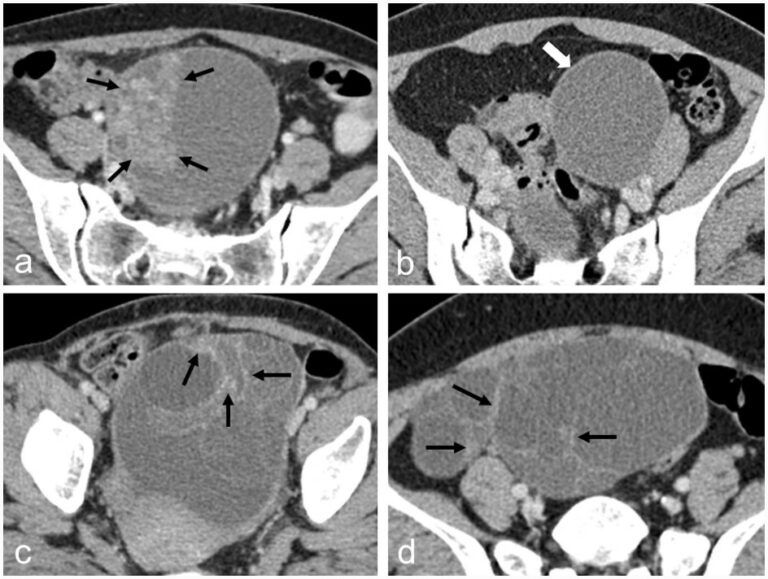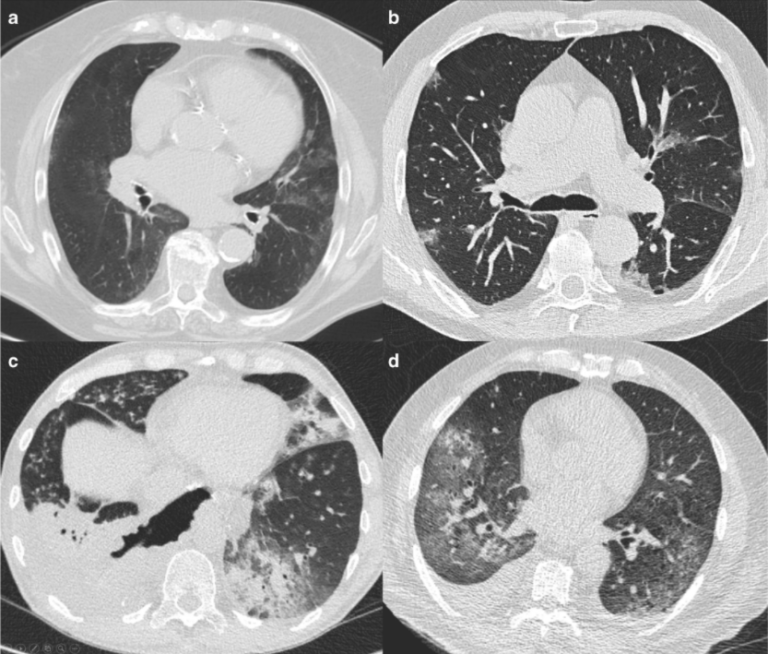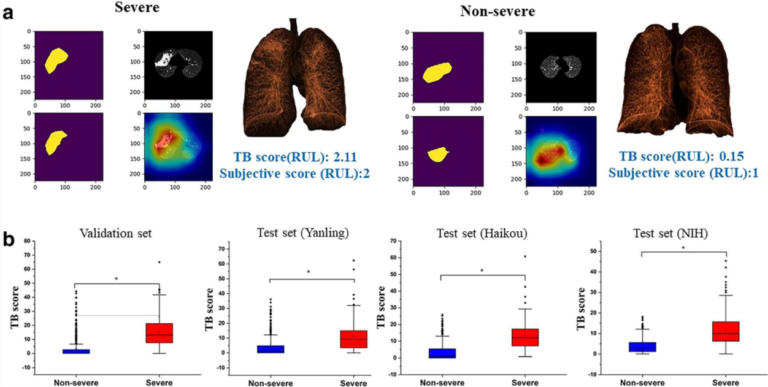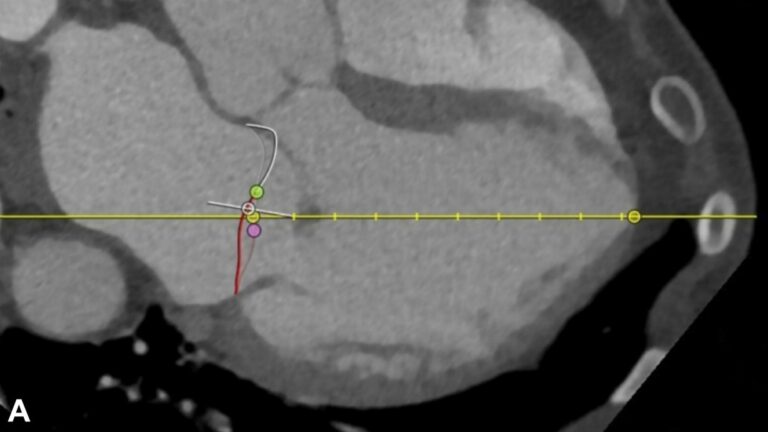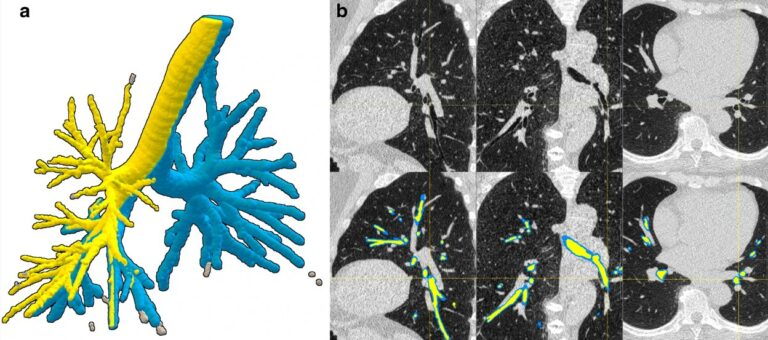
Reproducibility of a combined AI and optimal-surface graph-cut method to automate bronchial parameter extraction
The authors of this study evaluated the reproducibility of a deep learning and optimal-surface graph-cut method to automatically segment the airway lumen and wall, and calculate bronchial parameters. A deep-learning model was trained on 24 low-dose chest CT scans. The study demonstrated a comprehensive and fully automatic pipeline for bronchial parameter measurement on low-dose CT using open-source tools. Key points










